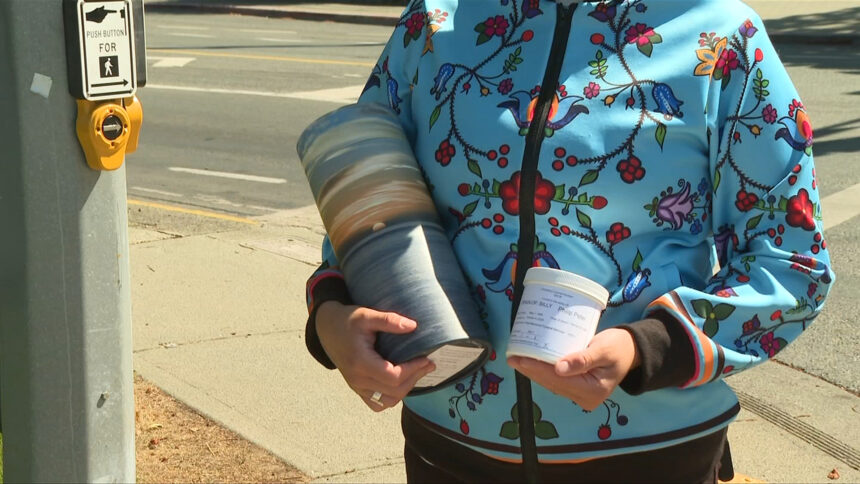Sandra Demers still remembers the horror of that moment. Three months after burying her father, Gary Essery, she received a call from the BC Coroners Service with news that would upend her grief: they still had her father’s brain.
“I was in complete shock,” Demers told me during our interview at her Vancouver Island home. “How do you forget someone’s brain? How do you release a body without all its parts?”
The devastating revelation has now prompted Demers to file a lawsuit against Island Health and the BC Coroners Service, alleging negligence and emotional distress after her father’s body was released for burial without his brain following an autopsy.
I reviewed the 27-page legal filing submitted to the BC Supreme Court. The document details how Essery, 73, died in November 2022 at the Nanaimo Regional General Hospital after a sudden illness. As standard procedure in cases where cause of death wasn’t immediately clear, his body was transferred to the coroner for examination.
The lawsuit claims the brain was removed during autopsy but inadvertently retained when the rest of Essery’s remains were released to the funeral home. Hospital pathologists preserved the organ for further testing but failed to inform the family or ensure its return before burial.
Dr. Erin Noste, a forensic pathologist not involved in the case, explained that brain retention is sometimes necessary. “In certain deaths, the brain needs specialized examination that takes days or weeks longer than the standard autopsy,” she said. “But there should always be clear communication with families about this process.”
The BC Coroners Service’s own guidelines, available on their website, specify that families must be informed when organs are retained and given options regarding their eventual disposition. These protocols appear not to have been followed in Essery’s case.
For Demers, the impact extends beyond procedural failure. “We held a traditional burial service. My father’s body was supposed to be whole,” she said, wiping away tears. “Now I live with knowing he’s in the ground incomplete.”
The family’s lawyer, James Hanson, pointed out the deeper implications. “This case raises serious questions about dignity in death and the rights of families to make informed decisions about their loved ones’ remains,” he said. “The cavalier handling of human remains causes profound spiritual and emotional harm.”
The case echoes similar incidents that have occurred elsewhere. In 2019, the Ontario Coroner’s Office revised its policies after several families discovered organs had been retained without their knowledge. The Canadian Association of Pathologists now recommends standardized consent procedures for organ retention during autopsies.
Island Health spokesperson Michelle Pridmore declined to comment specifically on the lawsuit but stated, “We take these matters extremely seriously and have comprehensive protocols for handling human remains with dignity and respect.”
After discovering the error, the coroner’s office gave Demers limited options: have the brain cremated separately, returned to the funeral home, or buried in the existing grave. She ultimately chose to have her father’s brain cremated, but the experience has left lasting trauma.
“I had nightmares for weeks,” Demers said. “I kept imagining my dad’s brain sitting alone in some laboratory fridge while his body was in the ground.”
The lawsuit seeks damages for negligence, breach of statutory duty, and the infliction of mental suffering. Beyond financial compensation, Demers hopes her case will lead to systemic changes.
I spoke with Elaine Gibson, a health law professor at Dalhousie University, who reviewed the case details. “This highlights a gap between medical-legal procedures and family-centered care,” Gibson said. “Authorities must recognize that human remains aren’t just evidence or specimens—they represent someone’s loved one.”
The Coroners Act of British Columbia grants officials the authority to perform autopsies and retain tissues necessary for determining cause of death. However, this authority comes with the responsibility to maintain clear communication with families.
Court documents show the family is seeking changes to autopsy protocols, including mandatory documentation of all retained organs and written consent requirements before burial or cremation proceeds.
As the case moves through the court system, it raises important questions about the intersection of medical procedures, legal requirements, and family rights. For Sandra Demers, the legal battle represents something deeply personal.
“This isn’t just about what happened to my father,” she said, looking at a family photo on her mantel. “It’s about making sure no other family has to experience this kind of trauma. When you say goodbye to someone you love, you deserve to know you’re saying goodbye to all of them.”






